Potsdam: Nuthestraße
MÄCKLERARCHITEKTEN, HKK Landschaftsarchitektur and ARGUS Stadt und Verkehr
A New City Gateway
The eastern entrance to Potsdam via the Humboldt Bridge will have its six lanes of traffic reduced and will be given a canopy of trees, returning it to a human scale. The proportions of the road will be set by the magnificent trees, giving an impression of spaciousness. The large trees are already visible from the Humboldt Bridge and mark out the newly created gateway at the bridgehead. This is to create a new city entrance for the south-east of Potsdam.
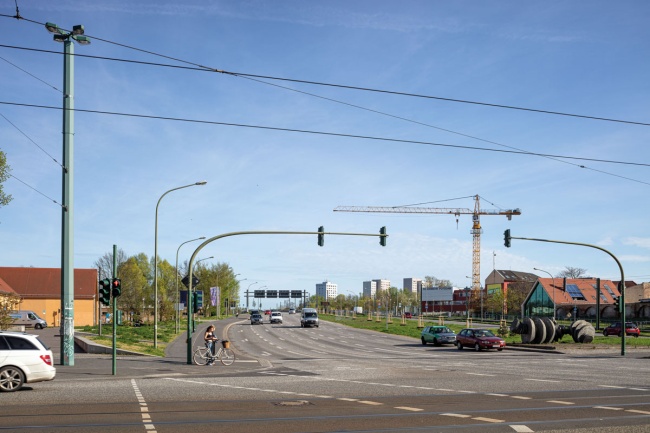
The existing streetscape
The entrance to the city of Potsdam at the Humboldt Bridge is a mess of eight traffic lanes and tram tracks. This can be transformed into a spacious “city gateway” by reducing traffic access. Nuthestrasse begins at Berliner Strasse and has connected Potsdam’s city centre with the districts of Zentrum Ost, Babelsberg, Schlaatz, Drewitz and Stern since the end of the 1970s.
Site plan
The site plan shows the clear demarcation of space for the newly organised street. Traffic is to be routed parallel to the former stables. An elongated new building on the narrowed Nuthestrasse separates the street from the two new courtyards that are being created in front of the Kunstraum Potsdam and the T-Werk. Climate-resilient trees will shape the street as well as the courtyard and the square. There is also space for a new residential building to provide urgently needed housing to the south of the street.
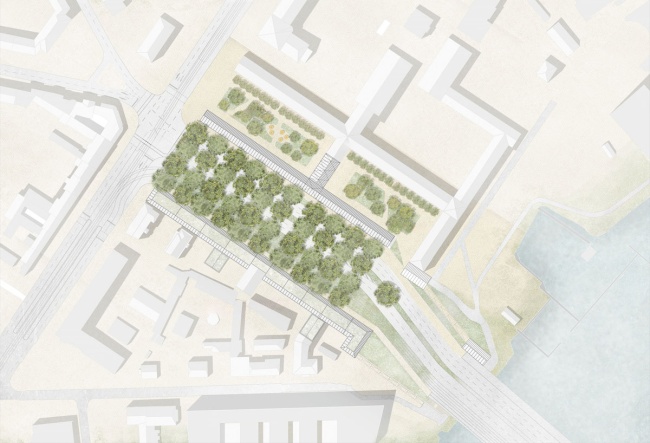
Cross sections
Due to the higher bridgehead, the street level facing the Humboldt Bridge can be distinguished from the lower ground level of the former stables. The new, elongated building clearly demarcates the street from the square and courtyard areas, while at the same time it will be able to connect the different spatial levels of the urban area in the interior.
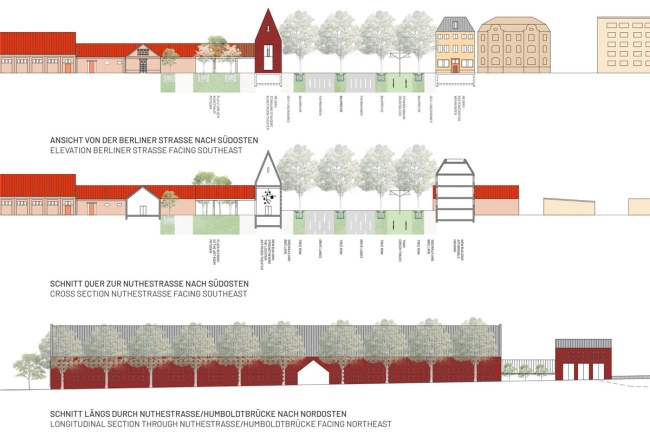
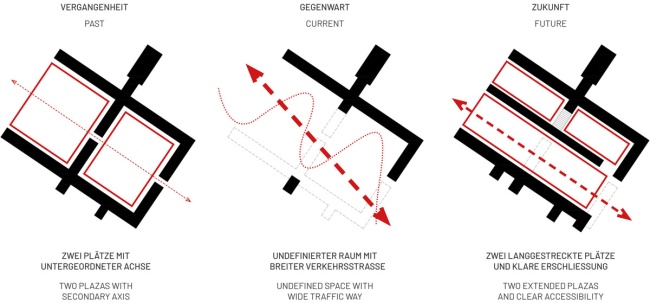
Pictograms
The stables used to surround two connected farms. There was no bridge over the Havel. The southern part of the development was destroyed during the war. With the construction of the Humboldt Bridge (1978/1981), today’s major traffic junction was created, breaking up the area and making it impassable for pedestrians. The urban space has been redefined through the reorganisation of traffic, new buildings along Nuthestrasse and large trees.
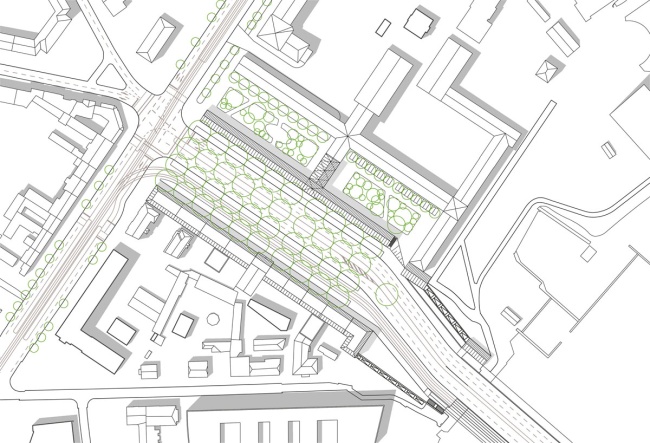
Transport layout
The mobility revolution needed to meet climate targets predicates a reduction in the volume of traffic by 30 per cent. To do this, two lanes previously reserved for cars on Nuthestrasse will be repurposed. These lanes, as well as the three outbound lanes, will each be 3.25 metres wide. Cycle paths and walkways will be linked to the existing road.
The design
The city’s entrance is being redefined and its historic buildings enhanced and extended. The motorway-like entrance to the city of Potsdam will become a vibrant place for everyone to enjoy, whether on foot, by bike, public transport or car.
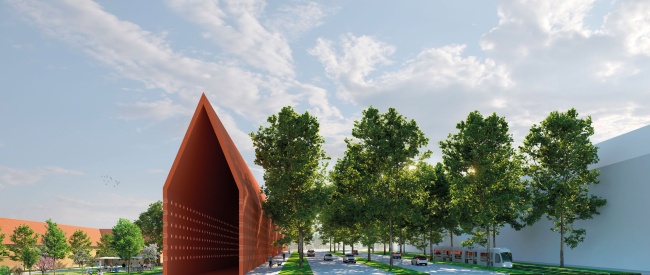

Christoph Mäckler, Johannes Cox (HKK), Konrad Rothfuchs (ARGUS)
Fotos: © Thorsten Jansen, © HKK, © Roman Pawlowski
The team
Mäckler Architekten design buildings of different sizes and uses, as well as city neighbourhoods. HKK Landscape Architecture designs harmonious open spaces with a focus on aesthetics, ecology and functionality. ARGUS Stadt und Verkehr deals with all urban mobility issues.